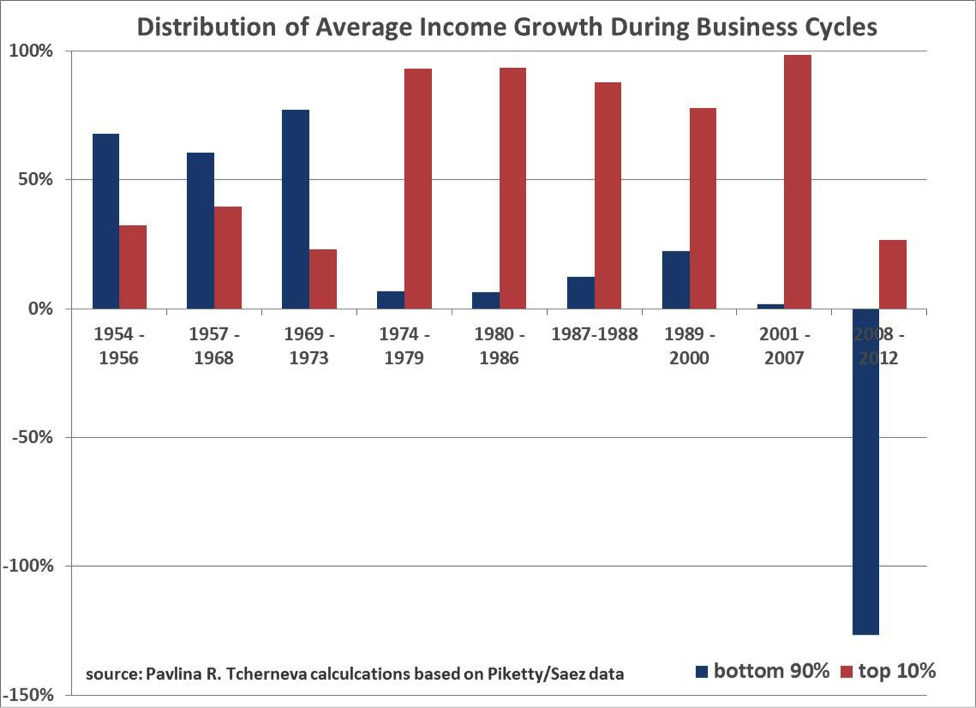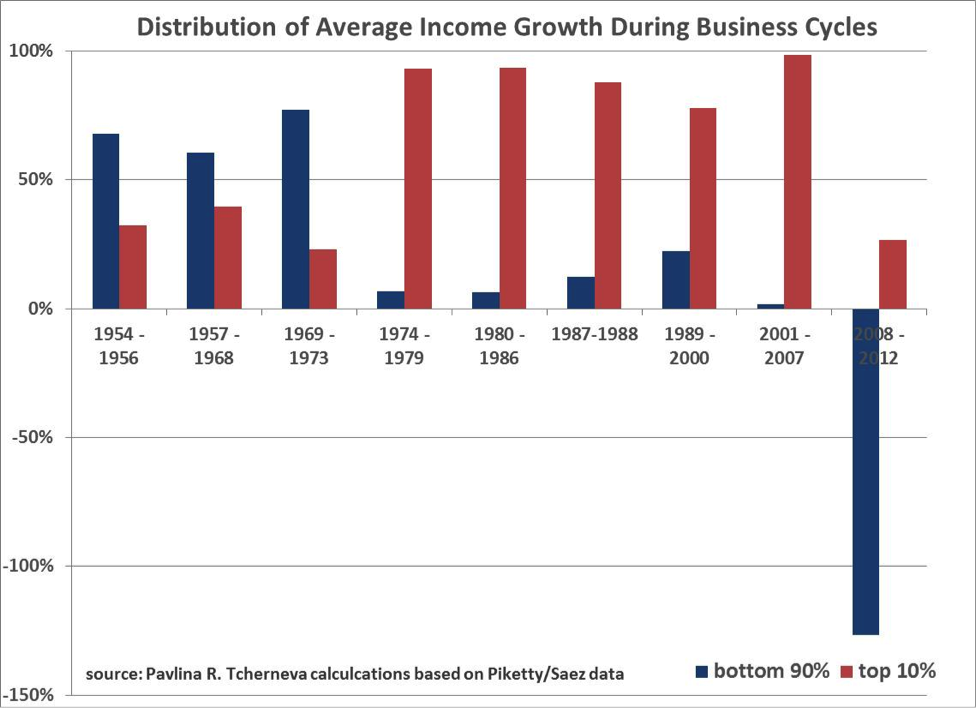The bottom 90 percent of people got utterly hosed in the Great Recession


A free daily email with the biggest news stories of the day – and the best features from TheWeek.com
You are now subscribed
Your newsletter sign-up was successful
It's obvious by now that America's economy is not working as advertised. Previously I posted this now-infamous chart by Pavlina Tcherneva laying out the pre-tax distribution of income during postwar economic expansions, showing a steady deterioration in the position of the bottom 90 percent of people, and a corresponding advance of the top 10 percent.
Of course, that's a fairly narrow window of data, and Scott Winship quibbled mightily with the conclusions, arguing that if you take taxes and transfers into account, and exclude capital gains, and look at the full business cycle, then the chart isn't so alarming. But Tcherneva has responded herself, arguing that in one of his charts, Winship was inappropriately double counting years:
I examine periods from peak year to peak year, but I do not double report peak years. Instead, I take the year after a peak to the actual subsequent peak year. For example, looking at the Piketty-Saez spreadsheet, the year 1988 was a peak year for average income, it then started declining in 1989, 1990, and all the way until 1996, when it began gradually recovering culminating in another peak income year in 2000. [New Economic Perspectives]
So by including the whole business cycle, and not just economic expansions, she produced this chart:
The Week
Escape your echo chamber. Get the facts behind the news, plus analysis from multiple perspectives.

Sign up for The Week's Free Newsletters
From our morning news briefing to a weekly Good News Newsletter, get the best of The Week delivered directly to your inbox.
From our morning news briefing to a weekly Good News Newsletter, get the best of The Week delivered directly to your inbox.

It does change the smoothness of the expansions-only trend somewhat, but it also tells us the Great Recession was and continues to be absolutely terrible for the bottom 90 percent. The main takeaway from this debate, however, is that (as even Winship admits) income inequality has increased dramatically, and is only getting worse.
A free daily email with the biggest news stories of the day – and the best features from TheWeek.com
Ryan Cooper is a national correspondent at TheWeek.com. His work has appeared in the Washington Monthly, The New Republic, and the Washington Post.
